ChatGPT - Opportunities and Legal Implications For Businesses
ChatGPT - Opportunities and Legal Implications For Businesses
ChatGPT – Opportunities And Legal Implications For Businesses
Depending on what you read and your personal views on technology, ChatGPT is either an amazing tool that will eliminate the drudgery of answering customer questions and writing articles, reports etc, or the beginning of AI taking over and eventually destroying the world. Fortunately, one thing we can be (reasonably) confident of is that a Terminator style, super intelligent AI driven apocalypse will almost certainly remain in the realms of movie makers’ imaginations.
Like any innovative technology, ChatGPT is a tool that can be used to increase productivity and divert resources to other areas. However, the natural laws of the universe ensure that all positive developments have corresponding negative consequences. Think about online reviews. The fact that anyone can check what others think about a business by doing a quick Google search is a major plus for organisations who work diligently to provide excellent service. But alongside this comes fake, malicious reviews that can destroy a business in a few disgruntled keystrokes.
Before using ChatGPT, it is important for businesses to undertake a comprehensive risk analysis to ensure they understand the opportunities and risks associated with the tool. This will help ensure it is used in areas of the business where it can provide great benefits, and avoided like the plague in departments which could be struck with a defamation or copyright infringement lawsuit faster than you can say “can I help you?”
What is ChatGPT?
ChatGPT is short for “Chat Generative Pre-trained Transformer”. It was created by Open AI and launched in November 2022. By predicting the next word in a series of text it can create grammatically correct answers to questions fed into it via its ‘chat’ function.
ChatGPT works thanks to a language model created by installing over 300 billion words scraped from the internet in the form of books, articles, websites, and blog posts. The system uses the data provided to learn how to predict the next word.
According to Cal Newport, who writes extensively on technology issues in publications such as the New Yorker:
“The large language model that drives ChatGPT is static. Once it’s trained, it does not change; it’s a collection of simply structured (though massive in size) feed-forward neural networks that do nothing but take in text as input and spit out new words as output. It has no malleable state, no updating sense of self, no incentives, no memory. It is possible that we might one day create a self-aware AI …. but if such an intelligence does arise, it will not be in the form of a large language model.”
What are the benefits of ChatGPT for businesses?
- Customer service – ChatGPT allows businesses to provide seamless, 24/7 customer service, permitting simple customer enquiries to be answered without the need for human intervention.
- Research – ChatGPT can help with the development of content and marketing ideas, including identifying keywords.
- Content writing – simple blog posts can be created through the language model. It can also support writers by suggesting sentence structures and correcting grammar and spelling.
- Translation – translating documents can be achieved quickly and simply through ChatGPT. This makes it easier to sell and market in different countries.
- Automate social media marketing – not only can ChatGPT write social media posts, but it can also schedule updates and reply instantly to customer enquiries sent via social media.
- Data processing and analysis – ChatGPT is able to sort through vast amounts of data in seconds, identifying trends and consumer decision making, helping boards and business owners develop current and future strategies.
What are the legal risks of using ChatGPT?
In mid-May, the Irish Times was forced to issue an apology after it discovered a piece entitled ‘Irish women’s obsession with fake tan is problematic’ was written predominantly by ChatGPT. The article was accompanied by a picture and by-line of the author identifying herself as a Latin American migrant woman named Adriana Acosta-Cortez living in North Dublin. Soon after the article was published, other journalists smelled a rat and alerted the newspaper that the piece may not be genuine. The ‘author,’ who for obvious reasons did not want to be identified, said she instructed ChatGPT to write a 1,000-word opinion piece “on how fake tan is appropriating and fetishising the high melanin content of more pigmented races, from the point of view of a non-binary latinx woman of colour living in Dublin, Ireland”. In addition, they specified that the AI should “emphasise the fake tanning culture in Ireland and address the piece to Irish women.”
In the apology, the editor stated:
“It was a hoax; the person we were corresponding with was not who they claimed to be. We had fallen victim to a deliberate and coordinated deception.”
Inadvertently publishing fake news/articles by counterfeit people is only one of the new risks facing businesses. Others include:
- Defamation – ChatGPT is not always accurate. In early April it was reported that Brian Hood, Mayor of Hepburn Shire Council in Australia stated he was taking legal action after the language tool falsely claimed he was imprisoned for bribery while working for a subsidiary of Australia’s national bank. Any business that publishes inaccurate information via ChatGPT generated content could find themselves being sued for defamation if they do not check the facts of what ChatGPT produces.
- Copyright infringement – because the language model underpinning ChatGPT was created by data scraped from the internet without permission, the opportunities for inadvertently breaching copyright abound. At present, the focus of various class-action lawsuits is on Open AI and other developers; however, this may change in the future as Claimants go after SMEs which may be seen as easier targets.
- Data protection – again this risk stems from the way language models were developed. Personal data may have been skimmed from the documents used to build the systems. The European Data Protection Board (EDPB) has developed a ChatGPT taskforce in the first step to developing an EU common policy on data protection and AI language models. Governments around the world, including the UK, are being warned that adequate regulation of AI is crucial for, amongst other things, the future privacy and data protection.
- Cybersecurity – although ChatGPT has built in safeguards to prevent criminals creating phishing emails, researchers found that they were relatively simple to bypass by rewording the request. ChatGPT provides another access point for cybercriminals to infiltrate business IT systems.
Wrapping up
Businesses can no longer ignore ChatGPT, the genie is out of the bottle and cannot be put back. What is important is not the decision to use AI language models, but to develop adequate risk assessments to safeguard your business against data security breaches, cybersecurity breaches, and possible civil litigation. To find out how we can assist you with undertaking risk assessments, please email us at info@43legal.com or phone 0121 249 2400.
The content of this article is for general information only. It is not, and should not be taken as, legal advice. If you require any further information in relation to this article, please contact 43Legal.











